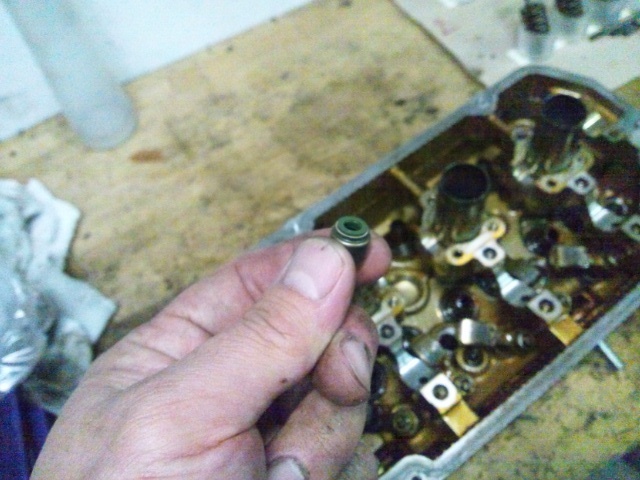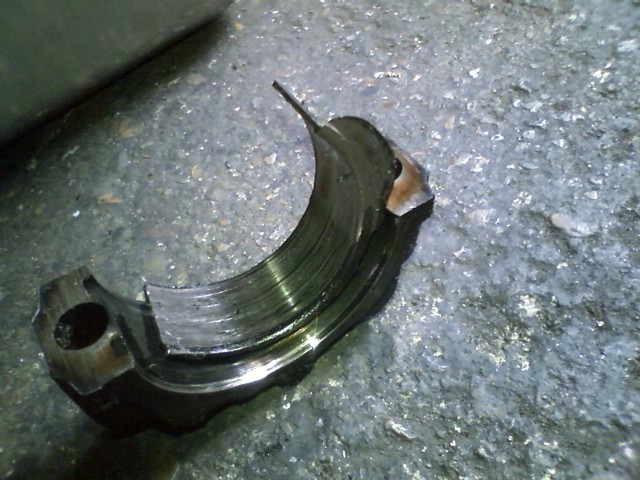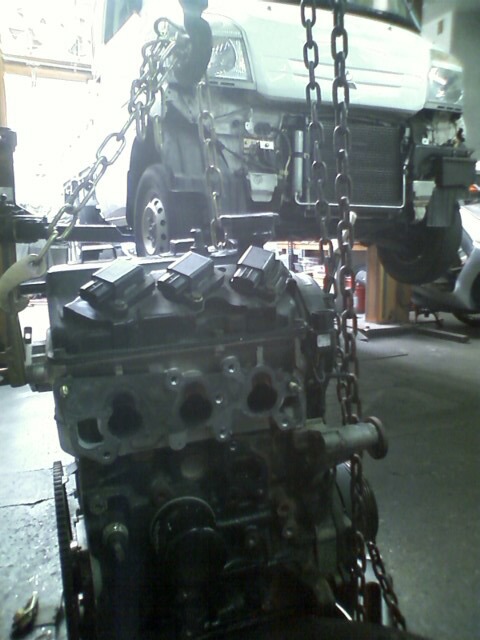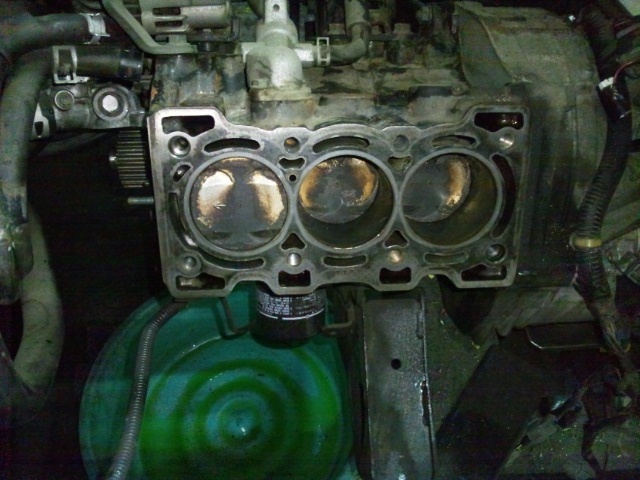It is a consultation about the engine malfunction.Thank you very much for posting as soon as the consultation room was opened.
"Howdy.I bought Maruyama molybdenum the other day.
It is true that i was able to experience the fuel immediately.It is probably Takeshi's theory.Today is a consultation on the contents of maintenance.
Recently, I noticed the oil loss, but white smoke continues for a while from the start of the engine and stops when running for a while.Because it is not a big amount, oil consumption is not so much.
However, this white smoke seems to have been there a few years ago or quite a while ago, and the exhaust gas should have been in a state where the exhaust gas did not pass the inspection with the engine cold.Over the past decade, it seems to be a very slow state of aging.
I guessed it was white smoke due to the deterioration of the valve stem seal.It is a vehicle of 240,000 kilometers running of the 1996 model year.I thought about a headover, but considering the mileage, I wonder if it is better to replace it with an engine rebuild.
Japan Rebuilt's rebuilt engine is made of new valve stem seal, piston ring, and parent-child metal, and it also handles horning treatment, and seems to be tightly assembled in the manufacturer's overhaul kit.
In the case of white smoke due to the deterioration of the valve seal, I thought from a headover, but considering the mileage, do you think it is better to load it into a rebuilt engine?The cost is a little more than double the headover.
I can understand the aging of the valve stem seal, but I can't judge the durability of the engine waist, such as piston rings, because I can't imagine at all.Please let us know what you think of professionals.』
First of all, I talk about the phenomena of "oil loss".
I have to explain again to the readers who are interested in cars,
"Oil Loss through Valve Guide" is a problem that engine oil enters the intake and exhaust port from the valve stem seal.In modern times, most overhead camshaft engines, so it is an image of engine oil entering "downward" from the valve stem.
An example of a valve stem seal
On the other hand, "oil loss via the piston ring" is a problem that engine oil enters the combustion chamber due to sliding wear of the piston ring and cylinder, and oil scraping performance degradation of the oil ring.It is an image that engine oil enters from the crankcase to the fuel chamber of "upward".
Both defects can be detected by engine oil consumption and white smoke from mufflers, but the guess from the phenomenon is only guessed.
The important thing is that you don't know the real cause unless you try to disassemble the engine.
In addition, if the questioner's car is equipped with a turbocharger, the engine oil leak from the shaft of the turbocharger can also cause white smoke.
It is said that white smoke comes out only for a while at the time of the cold machine, but there is a crack and wear of the valve stem seal, and a certain amount of engine oil that drips into the port at the time of engine stop may be burning "oil drop", and the cylinder is worn, It may be an "oil up" between the time the gap between the piston and the cylinder becomes narrowdue due to thermal expansion.
Of course, I think that there is a high possibility of deterioration of the rubber valve stem seal.However, depending on the engine oil change management and the quality of the engine oil, there are many engines where the condition under the waist is not good.
If the engine oil change management is appropriate for riding from a new car, I think that it is good to perform the valve stem seal change first (in the case of turbocharger on the good ness judgment).The lower waist of the engine oil had been properly replaced is very little pain even if the mileage is too high.
As you know, crank metal and connecting metal are fluid lubrication.Because it floats by hydraulic pressure, metal does not rub directly with each other.Even the sliding part of the cylinder of a multi-run engine, if the engine oil is changed properly, there is no wear mark that the crosshatch disappears.The engine that goes up the oil is worn by the cylinder by using high rotation and high load, or the piston ring is stuck (stick) with degraded engine oil (heavy shrink synthesis such as sludge).
Conrod metal baked in the skewer.If it hurts so far, it is accompanied by a terrible sound.

If you look at the age and mileage of the vehicle, the state of transmissions and other drive systems, undercarriage, fuel equipment, electrical equipment, etc. is also concerned.Rather than putting a large amount of money in one place, why not replace the valve stem seal with a high probability of failure, observe the state of the valve stem seal deterioration, and see the condition of the white smoke.
We look forward to hearing from you.We will answer your simple questions for free that you can't hear anywhere.


Leave a Reply